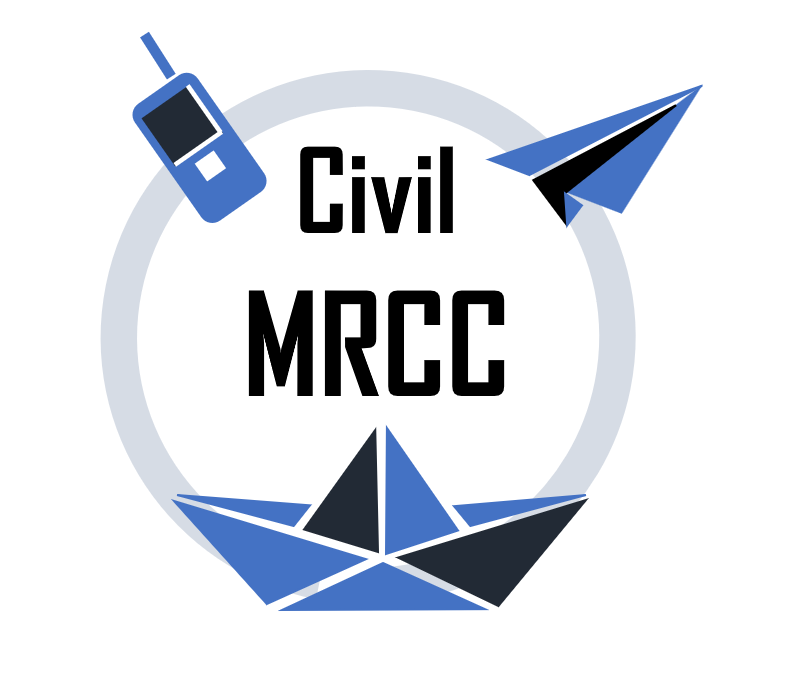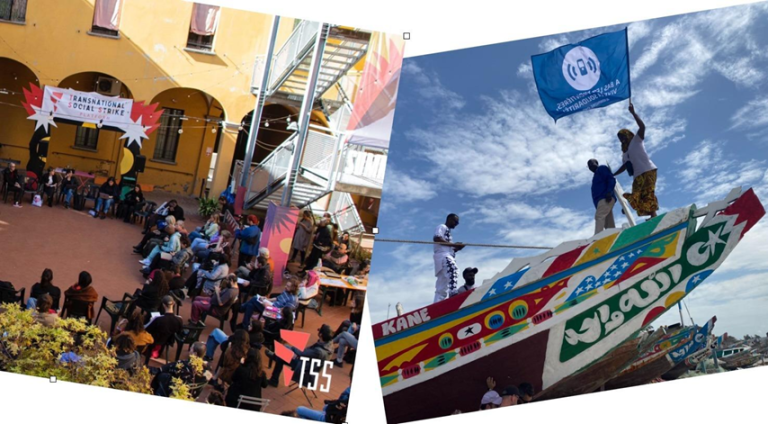Interview with Moctar Dan Yaye
1. In what context was the APS project launched? What are its main objectives?
The APS project was initiated at a time when Niger became Europe’s southernmost border. After the so-called migration crisis of 2015, the externalization of European borders spread to Africa, and it was in Niger that the EU decided to set up border controls to hinder northbound migratory movements, with the idea that migrants are potential candidates for crossing the Mediterranean.
As human rights defenders, we could not remain silent in the face of the walls being erected in the middle of Niger, obstructing the traditional ECOWAS area (Economic Community of West African States) which, since 1979, has guaranteed freedom of movement for its citizens. It was in this context that Alarme Phone Sahara was born, with three main objectives:
- documenting the various abuses and violations of the rights of people on the move, as well as deaths and disappearances in the desert
- raising national and international awareness about border externalisation policies in Niger
- rescuing people in distress in the Sahara desert. Inspired by Watch the Med Alarm Phone, APS has set up a free phone number so that people in distress can alert us
2. What are the main routes across the Sahara? What are the main destinations for these people?
There are two main routes across the Sahara: the Assamaka route to Algeria and the Kaouar route to Libya. However, these routes were used long before the European migration crisis. Before people started crossing the Mediterranean to Europe, these routes were used by Nigeriens who regularly travelled to the Maghreb countries.
This was also the case for other West Africans, who left for Libya or Algeria as part of a circular migration: people leave, work for a few months and then return to their country. For example, many go to Algeria for domestic work and come back. What is more recent are the people who take these routes with a view to crossing the Mediterranean.
3. According to the IOM, crossing the desert is just as deadly, if not more so, than crossing the Mediterranean. What are your findings?
Yes, it’s not for nothing that we call the desert the open tomb for migrants. Since 2015, because of the obstacles to the mobility of people moving towards the North, the number of disappearances and deaths has drastically increased in the Sahara. I remember when we launched APS, at the time, these tragedies were completely unknown to the general public. But over the years, with the denunciations and documentation work, it has been recognized at an international level that the desert is as deadly as the sea.
It’s difficult to estimate the number of deaths. Unlike the sea, the desert does not “vomit.” It doesn’t bring out its victims, but tends to swallow them up. When someone dies, it only takes 24 or 48 hours for the body to disappear under the sand. Also, the geographical location of the Sahara and the dangerous nature of the environment make it impossible to carry out advanced searches for missing persons. What is certain is that this is a very dangerous road, and every death is one too many.
4. How does the APS network help people in distress in the desert?
Unfortunately, our ability to organise help is limited. The first difficulty is locating the person in distress. There is a toll-free number that people can call, but telephone coverage is limited. We also rely on “whistle-blowers,” people who know the desert and the various villages well and who travel the roads on their daily journeys. These people try to organize first aid. For example, in the event of a car breakdown they point out places where people can refuel. Depending on the situation, a mission by car can also be sent out to look for people. We also alert the local authorities so that they too can organize rescue operations. Situations are always very diverse, and there are 1,000 ways of responding to a case of distress.

Picture: Alarme Phone Sahara
5. What responsibility do European states bear for the dramatic situation in which migrants trying to cross the desert find themselves?
The responsibility of the European states is clear. The European Union is using its influence on the countries of the South, which are poor or less powerful countries such as Niger, to force them to act as border guards and to put in place measures that endanger the lives of people crossing the desert. The EU is convinced that all those who cross the desert are candidates for immigration to Europe and that everything must be done to block them or prevent them from crossing the desert.
Niger has been one of the main targets of the European Union’s externalization policies since the Valletta Summit in 2015. Since then, colossal sums have been paid to the Niger authorities to play this role of Europe’s policeman. We must not forget the responsibility of the local authorities who are complicit in these European policies, even if it is true that there is a balance of power that does not always allow the countries of the South to refuse this “cooperation.” As we know, Europe makes development aid and humanitarian aid conditional on the introduction of policies to control mobility.
6. Has the coup d’état changed the situation of migrants in Niger?
Since 26 July 2023, we have been living in a new era in Niger, with the arrival of the military in power following the coup d’état. The situation has also changed for migrants. On 27 November 2023, just a few months after coming to power, the military took the decision to repeal law 2015-36, the law that we had decried and denounced in front of the ECOWAS court! This law, which hindered people’s mobility and criminalized transporters, was put in place in Niger with the technical and financial support of the EU, to the detriment of the national interest and the lives of migrants.
The repeal of the law has changed the situation of migrants by giving them the opportunity to continue their journey northwards once they arrive in Niger. That said, the passage remains difficult and we must continue to fight to ensure that the right to mobility is respected for all.
7. You are closely monitoring the situation on the border between Algeria and Niger. Can you tell us more about what is happening at this border and the role of APS?
At this border, people are expelled by the Algerian authorities in the middle of the desert, at what is known as “point zero,” some fifteen kilometers from the first village in Niger that can be reached, named Assamaka. What we’re trying to do is first document the number of people being turned back. We also have motorbike tricycles that enable us to patrol between ground zero and the village to rescue people who are unable to walk. They are often women, the elderly, children, or sick people. We transport them to Assamaka where they can access healthcare. We also support the re-establishment of family links by providing an internet connection and a telephone in our small office.
8. For several months now, the Tunisian authorities have been stepping up expulsions of migrants at the borders with Algeria and Libya. Could it be said that Tunisia is in some way copying the Algerian model?
Yes, among the people who are turned back at the Algerian border, we often find people who say they were previously expelled from Tunisia. And indeed, the Tunisian authorities have stepped up their expulsions of migrants at the borders with Algeria and Libya. However, I wouldn’t say that they are copying the Algerian model, but rather that they are implementing their own model and their own war on migrants and black people. The situation is different in Morocco, Algeria and Libya. Each country wages war on migrants in its own way, according to its own objectives and interests.
9. How do you see freedom of movement in the Sahel region developing over the next ten years?
The future of freedom of movement depends on many factors. Over and above migration policies, there is the question of insecurity in the Sahel. The situation is highly volatile and it is very difficult to know what the next ten years will look like. Given that certain states have recently withdrawn from the Sahel region, everything has to be remodeled and reinvented. For the time being, the political and social situation in the Sahel region remains very complex. However, I am an optimist, and I am convinced that it is hope that keeps us going and enables us to continue the fight. As defenders of the right to freedom of movement, we will continue to fight to ensure that this fundamental right is enjoyed by everyone in the Sahel region.
Thanks Moctar for this interview!

APS Website: https://alarmephonesahara.info



